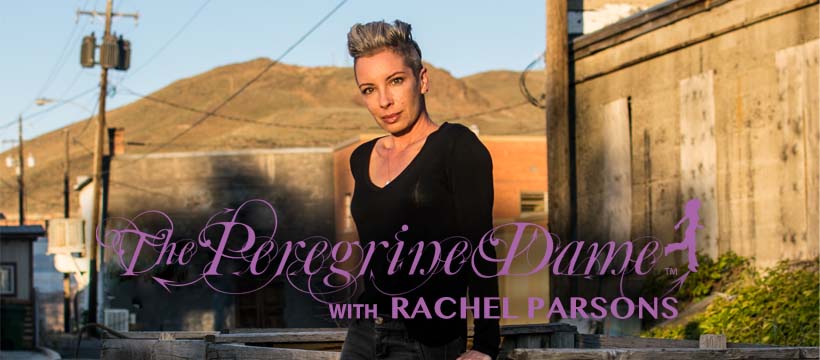Conversations in Yangon, Part II
By Rachel Parsons
"What do you want travelers to know?"
"They must know the situation," says U Nyan Win, the National League for Democracy's spokesman and The Lady Aung San Suu Kyi's personal attorney.
I'd been in Yangon, Myanmar little more than a week when I found myself sitting in front of Win, with whom I'd gotten an interview for the Yangon episode at the 11th hour.
However, peaceful civil protests are still being broken up by violent police and vigilante force. And though the press is much freer than it once was, reporters are still being arrested at the whim of authorities they rub the wrong way. Ethnic minorities have been targeted by sectarian violence for years and the economy is splitting drastically. Billions of dollars of development investment are pouring in but that's creating a case of haves-and-haves-not on a biblical scale. This place still has problems.
For many years, the National League for Democracy, the leading opposition to the military government, called for a travel boycott of the country formerly known as Burma. It was nearly impossible to travel to or in the country without at least some -- probably most -- of your money going to the murderous government. When the NLD shifted position and the curtains were pulled aside on Myanmar, letting the rest of us look in, the party started advocating thoughtful, responsible travel. Not outright tourism.
The owners of the guesthouse where I stayed are around my age and were children in 1988. They are active members of the NLD and are hopeful that things will continue to change for the better. Their 19-year-old assistant doesn't see anything changing any time soon. Since the leadership of the party is aging, one thing is clear: it cannot afford for younger generations to become cynical.
With parliamentary elections scheduled for November, people seem weary. The progress of reform has slowed. The military still directly controls 25 percent of the seats in parliament through appointment. Though the NLD routinely wins a majority of seats in a landslide in these contests when it isn't boycotting them, its chairperson, The Lady, is still banned from becoming president under the 2008 constitution written by the military. In April, talks began which may lead to amendment of the article that effectively prohibits her from taking the office.
Outside the sphere of politics, Yangon is a fascinating place in its own right. Buddhist, Muslim, and Christian Burmese share the sweltering half-decrepit, half-glittering port city with international diplomats, wealthy foreign businesspeople, poor foreign migrants, and ex-pats from all over.
Through CouchSurfing.org, my favorite site for reaching out to locals, I met a group of ex-pat teachers working at various institutions -- usually international schools catering to the children of the aforementioned diplomats and business types.
Some like it here, at least one hates it. None have yet bothered to learn any of the language, though one or two are about to start lessons. These are Americans and Australians who really enjoy teaching. Two of them are at a school with mostly Burmese kids whom they say they love for the children's outgoing personalities compared to other more docile Asian kids they've taught.
One man, Ben, teaches English to well-off Burmese teens and adults. In a country where internet access was so expensive that only the wealthiest could afford it and was censored rigidly until 2011 regardless, he has had to supplement his language lessons with other subjects like geography and history.
"They didn't know where England was," he says of one group of teen and adult students that included a doctor. "They didn't know who The Beatles were."
Things most of us take for granted, even think of as trivial, are still new to society here. He tells me his students either didn't know how to use an online search engine or used it the least effective way possible. When I think back to a time I didn't know what Google was my brain sends out a "does not compute" message.
But now that technology is in, it's in. Everyone my age and younger has a smart phone in his or her hand. The recent crackdown on the peaceful protests was recorded by camera phones and video apps.
In the past, cameras belonging to the media would be confiscated during these kinds of events. They still are in some cases. But there's no way to commandeer dozens of tiny devices that get stowed quickly in pockets.
This place has problems. But people are still working hard to solve them and the topics make for great conversation.
"They didn't know where England was," he says of one group of teen and adult students that included a doctor. "They didn't know who The Beatles were."
Things most of us take for granted, even think of as trivial, are still new to society here. He tells me his students either didn't know how to use an online search engine or used it the least effective way possible. When I think back to a time I didn't know what Google was my brain sends out a "does not compute" message.
But now that technology is in, it's in. Everyone my age and younger has a smart phone in his or her hand. The recent crackdown on the peaceful protests was recorded by camera phones and video apps.
In the past, cameras belonging to the media would be confiscated during these kinds of events. They still are in some cases. But there's no way to commandeer dozens of tiny devices that get stowed quickly in pockets.
This place has problems. But people are still working hard to solve them and the topics make for great conversation.




Comments